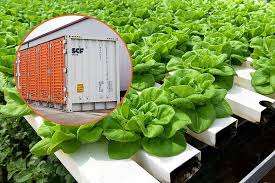
Breaking News
 EXCLUSIVE: "The HUGE Elephant In The Room Is Actually What Jeffrey Epstein Was Best At..."
EXCLUSIVE: "The HUGE Elephant In The Room Is Actually What Jeffrey Epstein Was Best At..."
 EXCLUSIVE INTERVIEW: Republican Candidate For Texas Governor "Doc" Pete Chambers Joins...
EXCLUSIVE INTERVIEW: Republican Candidate For Texas Governor "Doc" Pete Chambers Joins...
 Epstein Files Trigger Political Fallout Across Europe
Epstein Files Trigger Political Fallout Across Europe
 Conjoined twin 'influencers' who have gained more than 280,000 followers with their intimate
Conjoined twin 'influencers' who have gained more than 280,000 followers with their intimate
Top Tech News
 How underwater 3D printing could soon transform maritime construction
How underwater 3D printing could soon transform maritime construction
 Smart soldering iron packs a camera to show you what you're doing
Smart soldering iron packs a camera to show you what you're doing
 Look, no hands: Flying umbrella follows user through the rain
Look, no hands: Flying umbrella follows user through the rain
 Critical Linux Warning: 800,000 Devices Are EXPOSED
Critical Linux Warning: 800,000 Devices Are EXPOSED
 'Brave New World': IVF Company's Eugenics Tool Lets Couples Pick 'Best' Baby, Di
'Brave New World': IVF Company's Eugenics Tool Lets Couples Pick 'Best' Baby, Di
 The smartphone just fired a warning shot at the camera industry.
The smartphone just fired a warning shot at the camera industry.
 A revolutionary breakthrough in dental science is changing how we fight tooth decay
A revolutionary breakthrough in dental science is changing how we fight tooth decay
 Docan Energy "Panda": 32kWh for $2,530!
Docan Energy "Panda": 32kWh for $2,530!
 Rugged phone with multi-day battery life doubles as a 1080p projector
Rugged phone with multi-day battery life doubles as a 1080p projector
 4 Sisters Invent Electric Tractor with Mom and Dad and it's Selling in 5 Countries
4 Sisters Invent Electric Tractor with Mom and Dad and it's Selling in 5 Countries
Kimbal Musk's "Urban Farming Accelerator" Grows 2 Acres of Food in a Single Shipping C

The demand for real, local food is growing as more people become aware that agribusiness corporations such as Monsanto, along with lobbying groups like the Grocery Manufacturers Association, have a frightening grip on the nation's food system.
"Big Food" would rather everyone continue eating highly processed, mass-produced substances packed with genetically modified fillers and artificial ingredients.
The surge in organic and non-GMO sales is a heartening reminder that the power of the purse can make a difference. Farmers markets, where people congregate to buy real, nutritious food and meet the farmer who produces that food, have grown all over the country.
But the availability of real, local food is limited in urban areas, where communities often experience "food deserts" where the only things available are the unhealthiest processed substances of the Big Food industry.
Kimbal Musk – brother of the innovating entrepreneur Elon Musk – and his colleague Tobias Peggs are looking to change that by bringing real food production into the heart of urban areas.
This fall they are launching Square Roots, an "urban farming accelerator" centered on the use of modular shipping containers to grow the equivalent of two acres of food year-round. It's not just a box, though, but an initiative to join the energy of youth with healthy, sustainable solutions to food production.
"Square Roots builds campuses of climate-controlled, indoor, hydroponic vertical farms, right in the hearts of our biggest cities. We train young entrepreneurs to grow fresh, local food all year round. And we empower them to create forward-thinking, responsible businesses that strengthen their communities through real food.
All this means year-round heaven for local foodies. From farmer's market conversations to farm-campus parties, from speaker series' to digital content, Square Roots creates opportunities for everyone to dig into local food – even if there's two feet of snow on the ground."
With technology and urbanization, people have unfortunately been losing touch with the basic knowledge of where food comes from and how it is grown and made – which makes the system ripe for abuse by corporate interests and government lackeys.



